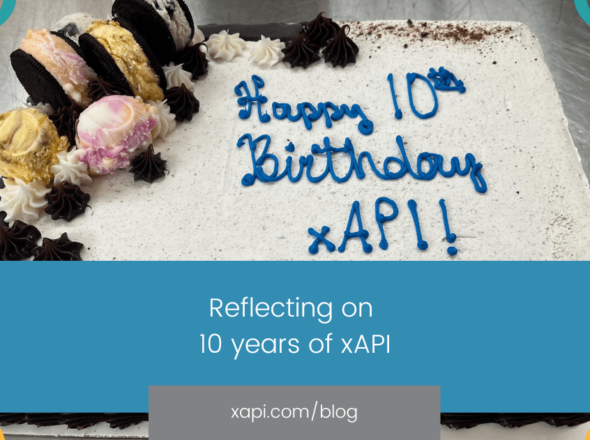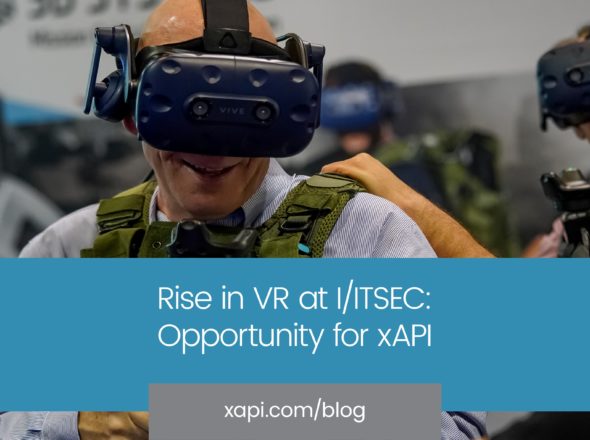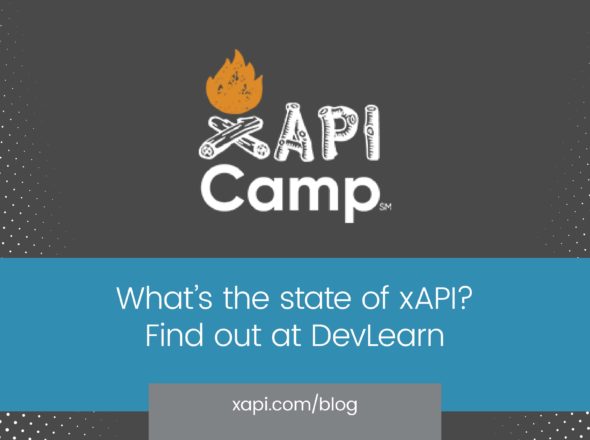Just a quick note as I head from ATD TechKnowledge in San Jose to Learning Technologies in London…
TechKnowledge was a good event this year. I enjoyed presenting with Margaret Roth of Yet Analytics and Megan Torrance of Torrance Learning at the xAPI Showcase, where we shared examples of what people are doing with xAPI. We used xapiapps to survey the audience about our presentations and three different LRSs (Watershed, Yet and SCORM Cloud) to compile the survey data. That provided a good representation of how to connect different xAPI platforms and the differences between LRSs.
It was fascinating to see the variety of questions in the xAPI space these days. We had good questions about the basic players like, “What’s a learning record store and what’s a learning record provider?” And we had good questions about the underlying technologies employed by LRS vendors like, “Are they using NoSQL solutions or traditional databases? And what’s preferable?” On a continuum, these questions are at opposite ends. But they came within moments of each other. Trying to modulate the answers for an audience so diverse really keeps you on your toes.
My thoughts on these questions…
In regards to the difference between a learning record store (LRS) and learning record provider, who knew the word “store” would be so confusing? It makes sense to me now, particularly in the context of the “App Store” that we instinctively think of the learning record store as a place to buy things rather than a place to keep them.
As for the question about using NoSQL solutions or traditional databases, both kinds of data stores have their place. And some providers are actually using both. But there is no simple, clear, right answer as to which is better. And xAPI (the specification) shouldn’t have an answer to it. Technologists can though.
Overall, I really liked the slightly calmer vibe at TechKnowledge. There is a little more space for nuanced conversation with people and that was helpful to me.


